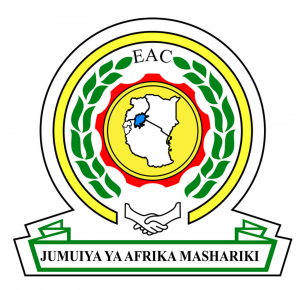After a decade off political and regional wrangling, the East African Single-Tourist Visa is a reality – albeit with one very glaring absence – that of Tanzania. The decision by the Tanzanian government to not participate in the popular tourist visa plan came with the claims that the visa program was a “security risk” and that it threatened the Tanzanian economy.
In contrast, the agreement inked by Uganda, Kenya and Rwanda has been hailed as a great achievement. Officials from each of the three EAC countries that ratified the deal claimed the agreement represents a “major boost to tourism in the region” and was “…an opportunity for the three nations to increase tourism numbers.”
Tourism numbers are a huge part of each of the economies of the three participating nations and, even without the participation of Tanzania, the member-nations who have agreed to the visa are poised to reap the benefits of additional tourism revenue.
Good, Fast and Affordable – East African Single-Tourist Visa Meets Goals
 From a cost perspective, the East African Common Tourist Visa will cost tourists $100 which is a savings of $50 compared to the $150 one would pay for three separate visas. For tour providers, the visa represents a chance to offer more multi-national tour packages and give tourists a greater feel for what East Africa has to offer.
From a cost perspective, the East African Common Tourist Visa will cost tourists $100 which is a savings of $50 compared to the $150 one would pay for three separate visas. For tour providers, the visa represents a chance to offer more multi-national tour packages and give tourists a greater feel for what East Africa has to offer.
The new visa has been modeled after the EU’s Schengen Visa – which gives visitors free access to all 26 EU member-nations. It’s been a successful venture that has allowed EU nations to leverage their strengths and partner for tourism offerings. Research shows that Kenya and Tanzania see far more tourists than their neighbours, however the research also shows that these visitors would have traveled to at least one other EAC country if obtaining an additional visa weren’t so cost-prohibitive and bogged down by bureaucracy and paperwork.
AECTV – A First Step in Greater International Cooperation
The new tourist visa is just he first step when it comes to enabling Uganda, Kenya and Rwanda to share tourists across borders. The future holds plans for a “single-destination” format related to the International Tourism Board this year and tourism events moving forward. Exhibition space for national and international tourism events would be divided between Uganda, Kenya and Rwanda and there’s the possibility of combined branding to tout the region as many destinations within one single region.
But the fact remains that Tanzania, an important tourism player in the region, is missing from the equation. Most officials within the three participating countries are eager, even desperate, to have Tanzania on-board as they see the added benefits as outweighing any concerns. Until Tanzania comes around, officials from the other countries are quietly telling the country to tone down the media rhetoric while they tout the benefits of the visa to the rest off the world.
Officials in Uganda, Kenya and Rwanda are concerned that the level of displeasure publicized by Tanzania may impact the reputation of the new visa program before it’s even established. In response, they are looking to boost the visa program on their own to minimize any negative publicity and prove to tourists that their countries are safe – and now easily accessible through the purchase of one common visa.
Tanzania – Justified Concerns for Opting Out of Program?
Tanzania has long-held that its reasons for not participating in the tourist visa program were security-based. Until the country is satisfied that acceptable security measures are in-place, the country is not willing to let other countries control who does (and does not) gain free-access to Tanzania through a tourist visa. Theoretically, the visa could be used by terror organizations to gain access to third-party countries – something Tanzanian officials are not willing to risk by participating in the program. It’s possible that this is somewhat lost in the media as the other three countries tout the program’s positives. Criticizing Tanzania for wanting to protect its borders and people may not be the most positive use of the media in this case.
What do you think? Has Tanzania made the right decision to exclude itself from the visa agreement between Uganda, Kenya and Rwanda? Are the country’s reasons justified? There’s no doubt the conversation will be ongoing until Tanzania finally decides to become part of the visa program.
Author
Eran Feinstein is the founder of Direct Pay Online. Direct Pay Online provides global e-commerce and online payments solutions for the travel and related industries He is a leading authority in the fields of e-commerce, travel and payments, having acquired extensive experience from various parts of the world.
